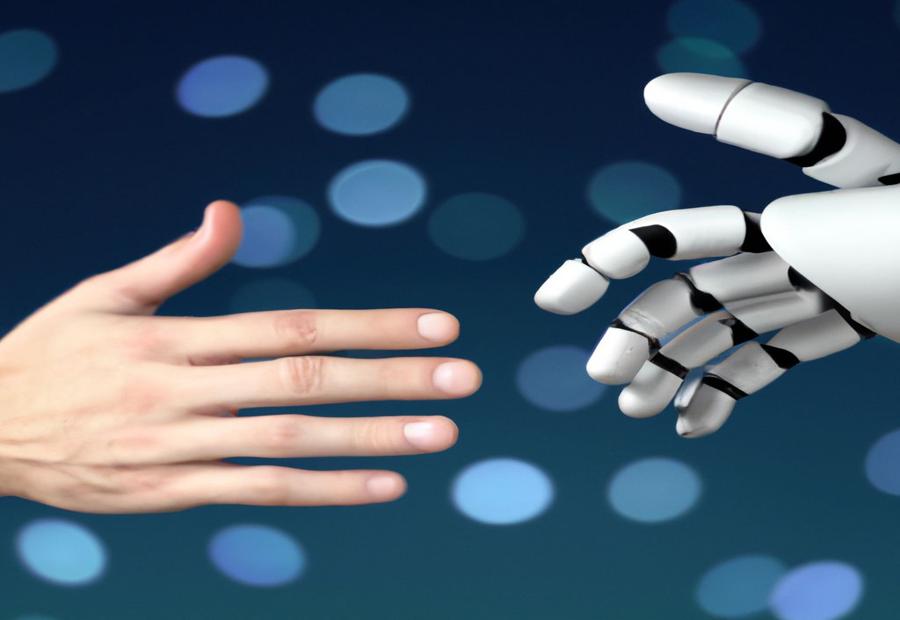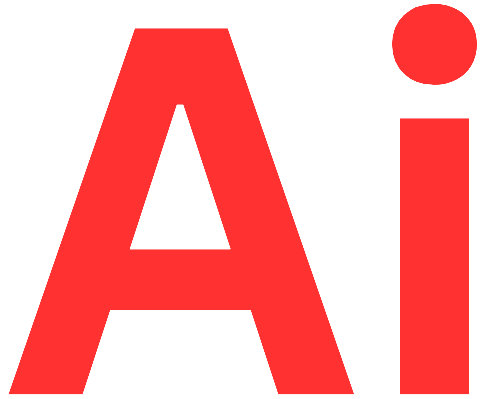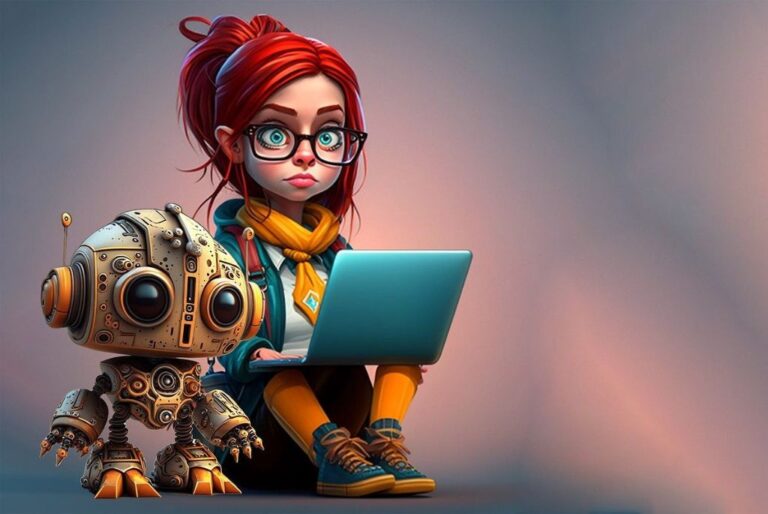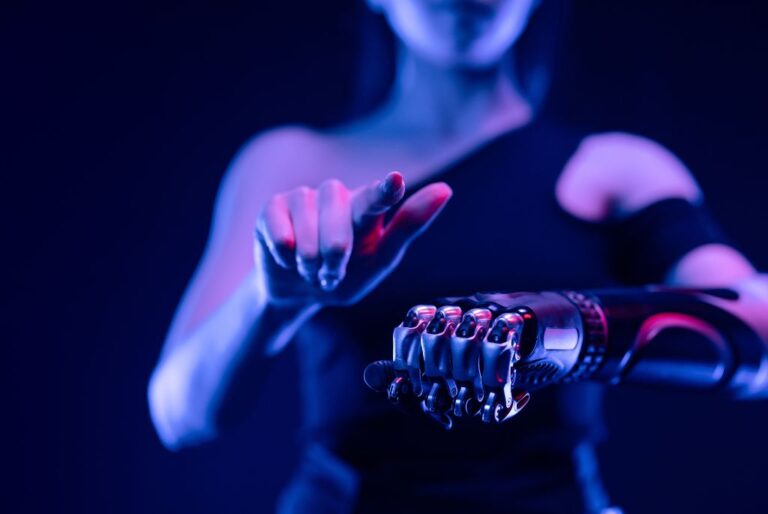Learning and Adaptation: The Journey of AI Chatbots
Key Takeaway:
- AI chatbots play a crucial role in learning and adaptation by providing personalized experiences and support to learners.
- The integration of AI chatbots in learning environments has the potential to enhance learning outcomes and make education more engaging and accessible.
- While AI chatbots offer numerous benefits, it is important to address ethical considerations such as potential biases in AI models and the responsible deployment of AI chatbot solutions.
With the rapid advancements in technology, AI chatbots have emerged as powerful tools for learning and adaptation. In this section, we will provide an overview of AI chatbots, exploring their functionalities and capabilities. Additionally, we will delve into the importance of AI chatbots in facilitating learning and adaptation processes. Strap in, as we embark on the exciting journey of understanding the transformative potential of AI chatbots.
Overview of AI chatbots
AI chatbots have become increasingly important in various fields, including education. These use artificial intelligence technologies to interact with users and provide info or help. In education, they can improve learning experiences and adapt to student needs.
Integrating AI chatbots in learning environments brings many benefits. They can personalize guidance and feedback to students, and adapt to learning styles and preferences. They can also assist teachers in managing large classrooms with real-time support.
Challenges come with the use of AI chatbots in education. These include potential biases in AI models, and ethical concerns about privacy and data security.
The future of AI chatbots in education holds great potential for enhancing learning experiences. Improvements in natural language processing and machine learning algorithms can help. Additionally, these solutions can support diverse learner populations. Refining AI models to reduce biases and ethically deploying these solutions is still needed.
Importance of AI chatbots in learning and adaptation
AI chatbots are significant for learning and adaptation. They offer personalized help and can comprehend and answer user queries, creating an engaging learning experience. Key advantages of using AI chatbots in education are:
- Enhanced accessibility: 24/7 support and guidance, regardless of time & distance.
- Improved engagement: Interactive conversations, encouraging participation & motivation.
- Personalized learning: Tailored content & recs based on individual needs & performance data.
- Real-time feedback: Instant feedback on assignments, quizzes, or assessments.
- Adaptive learning: Chatbots adjust responses & instructional strategies based on learner progress.
- Ease of use: User-friendly & intuitive, even for those with limited tech skills.
Ethical issues must be considered when deploying AI chatbot solutions. Algorithms should be bias-free & data usage should be transparent to build trust with learners. In conclusion, AI chatbots are important for learning & adaptation. They provide personalized help, enhance accessibility, & promote engagement. They offer a customized learning experience, real-time feedback, & adaptability. Ethical considerations & unbiased algorithms must be addressed to ensure trust & optimize learning outcomes.
Evolution of AI chatbots in education
The evolution of AI chatbots in education has seen significant progress, starting with early developments and later leading to the integration of these chatbots in learning environments. Discover the fascinating journey of AI chatbots in education and how they have transformed the way students and teachers interact and engage in the learning process.
Early developments in AI chatbots
AI chatbots have made a big impact in the early stages of education. They use NLP and machine learning to understand and answer learners’ questions. This integration has been a big part of the tech’s development.
Recently, these chatbots have become more sophisticated. They can give personalized feedback, create adaptive learning experiences, and even act as virtual tutors.
Research has shown that AI chatbots can help students stay engaged, motivated, and remember info better. They can also help with self-directed learning. However, there are still challenges like tech limitations, data privacy, and potential bias.
To make sure AI chatbots are successful in education, ethical considerations must be taken seriously. Developers should evaluate for bias and follow ethical guidelines.
Integration of AI chatbots in learning environments
AI chatbots in learning have become very important. They’ve evolved to be helpful tools that upgrade the learning experience for students.
- AI chatbots give personalized help with instant feedback and guidance.
- They can be included in various learning platforms, like online courses or virtual classrooms.
- AI chatbots can adjust teaching methods based on student needs, providing proper support and resources.
- They can encourage cooperative learning by promoting conversations and group activities among students.
- Including AI chatbots in learning helps make an interactive educational experience.
Apart from these advantages, there are also issues and limits with using AI chatbots in learning. For example, there’s a chance of bias in the AI models used by the chatbots, which can influence the accuracy and fairness of their answers. Ethical worries also happen about topics like data security and the sensible deployment of AI chatbot solutions.
Despite these troubles, the future of AI chatbots in education has great potential. They have the capability to change the learning process by offering personal and adaptive assistance to students. However, educators and institutions must be careful with this technology, finding a balance between AI chatbot aid and human-led learning.
Moving forward, it is essential for educators to accept AI chatbot integration to better student learning outcomes. The risk of missing out on this cutting-edge tech should motivate educational institutions to explore its advantages and use it in their learning environments. Doing this can let AI chatbots unlock their full potential in education and create an engaging and effective learning experience for learners.
Latest data on AI chatbots in learning
In the ever-evolving world of AI chatbots, it is essential to stay updated with the latest data on their role in learning. Let’s explore the benefits and limitations of using AI chatbots in learning outcomes, diving into how they contribute to educational advancements and the challenges they present. With facts and figures from reliable sources, we’ll uncover the fascinating journey of AI chatbots and their impact on the learning landscape.
Benefits of AI chatbots in learning outcomes
AI chatbots in learning have a ton of advantages for boosting learning results. They give customized help to students, tailored to each one’s needs and preferences. This personal strategy assists them to comprehend concepts faster and more proficiently, bringing about improved learning outcomes.
AI chatbots can give immediate feedback and direction to students. They can check a student’s reactions and give speedy explanations or proposals for improvement. This ongoing input not only enhances the learning process, but also aids students in identifying and addressing their weak spots, leading to better learning outcomes.
AI chatbots can encourage active engagement and participation among students. Through interactive dialogues and gamification elements, chatbots can make the learning experience more fun and immersive. This increased engagement encourages a positive attitude towards learning, resulting in better motivation and eventually better learning outcomes.
In addition to these benefits, AI chatbots in learning also offer unique advantages that have not been mentioned yet. For instance, they can assist teachers by automating administrative tasks such as grading assignments or answering frequently asked questions. By freeing up time for teachers, AI chatbots enable them to concentrate on delivering high-quality instruction and personalized support to students, which further promotes learning outcomes.
AI chatbots in learning: They’re like the class clown, but with a degree in psychology!
Limitations and challenges of using AI chatbots in learning
AI chatbots have infiltrated learning environments, offering students personalized experiences. But, it’s essential to recognize the restrictions and troubles that come with their use in education.
For instance, AI chatbots can misinterpret student input, giving inaccurate responses or suggestions. Plus, complex or unclear queries can be difficult for them to answer, limiting their capability of providing comprehensive support.
Furthermore, privacy and data security questions arise when relying on AI chatbots in learning, as these technologies often require access to personal info from students. Therefore, it’s paramount to prioritize continuous monitoring and updating of AI models used in chatbots to guarantee their accuracy and relevance.
In education, the introduction of AI chatbots is a peculiar juxtaposition of hilarity and ethics. Examining the potential limitations and biases hidden within AI models is an imperative part of the discussion. It is vital to address and overcome these challenges to guarantee fairness and equity in the learning process.
Ultimately, while AI chatbots offer thrilling opportunities for individualized learning, we must take a cautious approach to tackle the limitations and issues they bring to educational settings.
Ethical considerations of AI chatbots in learning
AI chatbots have revolutionized the way we learn, but what about the ethical implications? In this section, we’ll dive into the ethical considerations surrounding AI chatbots in learning. From potential limitations and bias in AI models to the ethical concerns in deploying chatbot solutions, we’ll explore the impact these factors have on education. So, let’s take a closer look at the ethical side of AI chatbots and how they shape the learning landscape.
Potential limitations and bias in AI models
AI models have potential limitations and bias that can impact accuracy, fairness, and performance of chatbots. Insufficient training data and biases in AI models from data used for training can lead to inadequate responses and perpetuate discrimination. To overcome these issues, researchers are working on stronger algorithms and more training data. NLP is also employed to better understand user inputs and reduce bias. Furthermore, using a diverse dataset helps mitigate bias.
Unique challenges exist in identifying biases and striking a balance between accuracy and mitigating bias. To address these issues, prioritize diversity when collecting training data and audit responses for unintentional biases. Collaboration between developers, educators, and ethicists is also essential for tackling limitations and biases. Lastly, ethical review processes can provide transparency and accountability of AI chatbot solutions.
Ethical concerns in the deployment of AI chatbot solutions
AI chatbot solutions in education raise ethical considerations. These issues, such as privacy, bias, reliability, transparency, accountability, and ethical guidelines, must be addressed to ensure fairness and protect students. Though they should not stop the use of AI chatbots, they should be addressed proactively so they can effectively enhance learning experiences.
The future of AI chatbots in learning
With AI chatbots becoming an integral part of the education landscape, let’s explore the promising future they hold in learning. Discover the potential benefits and impacts they bring to education, along with the challenges and opportunities that lie ahead. From enhancing personalized learning experiences to aiding in knowledge retention, AI chatbots are revolutionizing the way we acquire knowledge. Stay tuned to uncover the exciting possibilities that await us in the realm of AI chatbots in education.
Potential benefits and impact of AI chatbots in education
AI chatbots have the potential to revolutionize education. Their key advantages include:
- Personalized learning: AI chatbots can tailor their interactions and content to each student’s specific needs.
- Immediate feedback: Chatbots can quickly assess responses and provide timely feedback – something human teachers may not be able to do.
- Availability and accessibility: Chatbots are available anytime and anywhere – freeing students from physical classrooms and traditional office hours.
- Collaborative learning: Chatbots can facilitate group discussions and knowledge sharing.
- Data collection: Educators can gain insights into individual learning patterns.
But there are ethical considerations too. AI chatbots’ deployment in educational settings must guard against bias and protect student privacy. Striking a balance between AI chatbots and human-led learning is essential to maximize their potential.
Can AI chatbots sail through these unpredictable waters? Stay tuned to find out!
Challenges and opportunities for AI chatbots in learning
AI chatbots in learning offer both difficulties and openings. On the one hand, there are obstacles that need to be addressed for their effective utilization. These troubles involve potential restrictions and inclination in AI models, as well as moral worries encompassing their deployment.
However, on the other hand, AI chatbots provide immense possibilities for personalized learning encounters and upgraded learning results. Despite these challenges, the potential advantages and effect of AI chatbots in education can’t be ignored.
They can give customized help to students, enabling them to advance at their own pace. Moreover, the combination of AI chatbots in learning situations can prompt more drawing in and intuitive instructive encounters. To guarantee powerful training conveyance, it is essential to strike an equalization between AI chatbots and human-lit learning approaches.
For instance, a university incorporated an AI chatbot into its online course platform. The chatbot was created to respond to frequently asked questions, give extra assets, and offer personalized recommendations based on learner inclinations. Students expressed feeling bolstered all through their learning journey and valued the prompt reaction given by the chatbot. This success story features the potential of AI chatbots in improving learning encounters and results for students.
Navigating AI chatbots in education
Navigating the world of AI chatbots in education offers exciting possibilities for personalized learning experiences and enhanced learning outcomes. With the implementation of AI chatbots, students can enjoy tailor-made support and assistance, while educators can receive valuable insights into student progress and engagement. The journey of AI chatbots in education promises to revolutionize how we teach and learn, harnessing the power of technology to create adaptive and dynamic educational experiences.
Implementing AI chatbots for personalized learning experiences
AI chatbots are shaking-up education with personalized learning experiences. Powered by artificial intelligence, they use data and patterns to fit every learner’s unique needs and preferences. Tailoring their interactions and content delivery, these chatbots boost engagement and better learning outcomes.
AI chatbots have come a long way in education. Starting with basic interaction and response capabilities, AI tech has taken them to a whole new level. Now, they have natural language processing abilities, machine learning algorithms, and data analytics tools. This enables them to understand and reply intelligently to student queries.
AI chatbots offer many advantages for personalized learning. They give immediate feedback, provide extra explanations or resources when needed, identify individual learning gaps, and track student progress. Plus, they are available 24/7, giving learners assistance whenever they need it.
However, there are also some limitations and challenges. AI models may show bias, leading to unequal treatment or wrong answers due to factors like race or gender. Plus, privacy and data security are big ethical issues when using AI chatbot solutions in educational contexts.
To sum up, AI chatbots are transforming personalized learning experiences in education. With their adaptive, analytical, and engaging abilities, they streamline the learning process, making education more accessible and effective.
Enhancing learning outcomes with AI chatbots
AI chatbots have the capacity to improve learning outcomes by giving individualized and interactive encounters for students. They can use AI innovation to comprehend and adjust to singular learning needs, giving modified support and direction. Through their capacity to break down information and give ongoing criticism, AI chatbots can help students upgrade their comprehension and control of subjects, prompting improved learning results.
Also, AI chatbots can help in reducing the workload of teachers by robotizing certain errands, permitting them to concentrate more on individualized guidance and support for students. For enhancing learning outcomes with AI chatbots, these virtual assistants assume a significant part in giving adaptable learning encounters for students.
By using their AI capacities, these chatbots can modify the learning procedure by conveying focused on content and help dependent on each student’s extraordinary needs and qualities. They can evaluate a student’s advancement and offer modified proposals for additional examination or practice. This customized approach assists students with staying locked in and inspired while exploiting their learning potential.
It is essential to remember that while AI chatbots have the potential to improve learning results, they likewise introduce some impediments and difficulties. One restriction is the dependence on information contributions for exact reactions, which may be dependent upon predispositions or restrictions in the hidden AI models. Additionally, moral worries emerge concerning protection issues and guaranteeing that AI chatbot arrangements don’t infringe on student rights or strengthen segregationist practices.
Consequently, cautious thought must be given to address these moral contemplations with the goal to completely use the advantages of AI chatbots in instruction. Taking a gander at the development of AI chatbots in instruction, it is clear that they have made some amazing progress from their early advances. Initially thought of as straightforward inquiry and-answer frameworks, they have developed into refined apparatuses fit for understanding regular language handling and adjusting their reactions appropriately.
With headways in machine learning calculations and registering power, AI chatbots have gotten more brilliant and equipped for complex collaborations with clients. Consequently, they have the potential to disturb the manner in which we learn and enhance learning results for students later on.
Conclusion: Striking a balance between AI chatbots and human-led learning

Photo Credits: Artificialintelligencechatbot.Ai by Adam Ramirez
AI chatbots have changed the world of learning. They are an important part of education. These smart systems provide a fast and efficient way to interact with information and expand knowledge. AI chatbots understand and answer human questions, offering quick and accurate knowledge.
A great benefit of AI chatbots is they can review huge amounts of data and present it in an understandable way. Plus, they change their responses to fit each person’s learning style.
It is important to find a balance between AI and human-led learning. AI can process and give information, but human interaction offers empathy, thinking, and context that machines can’t. So, for the best outcomes, both approaches need to be used.
AI chatbots let learners get answers and guidance quickly. They can move at their own speed and investigate topics they like. AI chatbots also give endless support and feedback, making learning more fun.
At the same time, human-led learning offers a deeper understanding of complex topics and encourages analytical thinking. By blending AI and human-led learning together, individuals get comprehensive, personalized education.
To sum up, combining AI chatbots and human-led learning is essential for revolutionizing education. This mix of AI and human capabilities gives learners efficient knowledge, critical thinking, and problem-solving skills, all of which lead to better learning results.
Some Facts About Learning and Adaptation: The Journey of AI Chatbots:
- ✅ AI-based learning platforms like ChatGPT can provide personalized learning experiences and improve learning outcomes. (Source: eLearning Industry)
- ✅ ChatGPT, an AI chatbot, uses the GPT model to provide personalized feedback and practice opportunities in various learning contexts. (Source: Team Research)
- ✅ ChatGPT has limitations in understanding complex input and may be biased based on its programming and data input. (Source: Team Research)
- ✅ AI chatbots, including ChatGPT, offer benefits such as personalized lessons, immediate feedback, guidance, and data analysis for informed decision-making. (Source: Team Research)
- ✅ Ethical considerations of using AI in learning include bias, potential job loss for teachers, and data privacy and security. (Source: Team Research)
FAQs about Learning And Adaptation: The Journey Of Ai Chatbots
What is the training period for AI chatbots?
The training period for AI chatbots can vary depending on the complexity of the chatbot and the amount of data available for training. Generally, it involves feeding the chatbot with a large dataset of conversations and allowing it to analyze and learn from this data. This training process can take several weeks or even months.
Can you provide an example of a real-life chatbot solution deployment?
One example of a real-life chatbot solution deployment is in the quick-service restaurant industry. Floating staff who require training on various restaurant operations can benefit from an AI-based chatbot solution. The chatbot can provide interactive training modules, real-time feedback, and performance support, improving training efficiency and effectiveness.
How does AI chatbot data analysis work?
AI chatbots use data analysis techniques to analyze user conversations and extract relevant information. They can process large amounts of conversational data and identify patterns and trends. This data analysis helps the chatbot understand user intent, sentiment, and preferences, allowing it to provide personalized responses and experiences.
What are the benefits of AI in learning with big data?
AI in learning with big data offers several benefits. It enables personalized learning experiences by analyzing vast amounts of data and tailoring educational content to individual learners. It also enables data-driven decision-making, as educators can analyze student performance data to identify areas of improvement and adapt teaching methods accordingly. Additionally, AI can analyze and process big data quickly, providing immediate feedback and reducing the workload for teachers.
How do AI chatbots enable human-like conversations?
AI chatbots enable human-like conversations through natural language processing (NLP) techniques. They are trained on vast amounts of conversational data and can understand and respond to human language in a conversational manner. AI chatbots can analyze intent, tone, and sentiment, allowing them to deliver responses that mimic human conversation.
What is the role of AI chatbots in inclusive education?
AI chatbots have the potential to play a significant role in inclusive education. They can provide on-demand access to information and knowledge, allowing learners with different abilities and learning styles to receive support tailored to their needs. AI chatbots can also assist in delivering scalable and personalized learning experiences, ensuring that all learners have equal opportunities to succeed.







